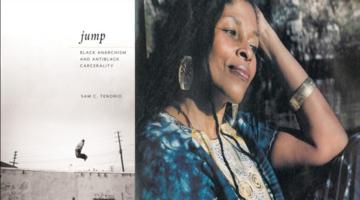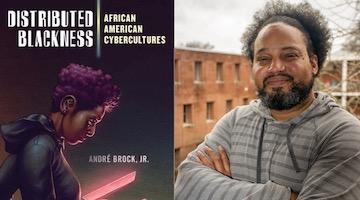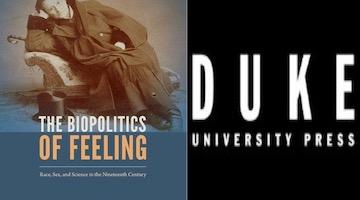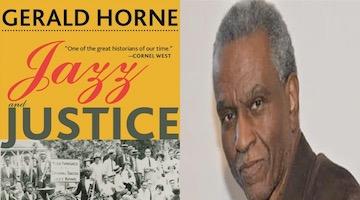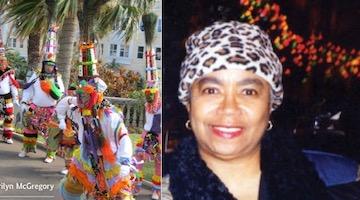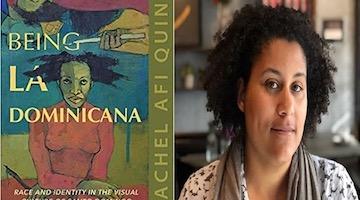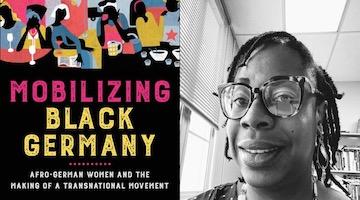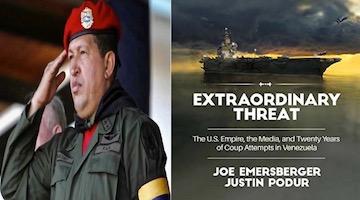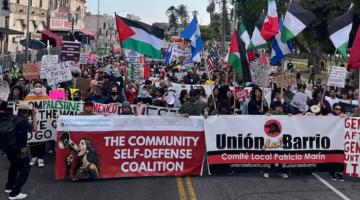The dominant conceptions and ideals of Western civilization aim to violate, destroy, and eliminate all that obstructs and impedes its path.
“Coloniality is global and it is not over.”
In this series, we ask acclaimed authors to answer five questions about their book. This week’s featured authors are Walter D. Mignoloand Catherine E. Walsh. Mignolo is William H. Wannamaker Professor of Romance Studies in Trinity College of Arts and Sciences and Professor of Literature at Duke University. Walsh is Senior Professor in the Area of Humanities and Cultural Studies at the Universidad Andina Simón Bolívar in Ecuador. Their book is On Decoloniality: Concepts, Analytics, Praxis.
Roberto Sirvent: How can your book help BAR readers understand the current political and social climate?
Catherine Walsh: One’s understanding of the current political and social climate is, of course, always situated. It is grounded in body politics, corporal geographies, and in the lived nature of the colonial wound. “Black lives matter” is not just an outcry; it is a discernment of the political and social climate and struggle present in the Americas and throughout the globe, a climate and struggle that racialized bodies know all too well. On Decoloniality situates this climate and struggle within the present and emergent war of global coloniality and capital entwined; a racialized, femininized and territorialized war in which the dominant conceptions and ideals of Western civilization aim to violate, destroy, and eliminate all that obstructs and impedes its path. Part I pushes deeper understandings of this current climate of war and, more crucially, of the climate of insurgent social, political, epistemic and existence-based praxis against coloniality and for its otherwise.
Walter Mignolo: In two complementary ways: Part I is telling us that coloniality is global and it is not over. Globalism is built on inter-state power differentials and the nations of each State in the interstate system loses relevance in, vis-à-vis, the goals of the State. Part II explores the underlying causes (or reasons) of the current political and social climate by tracing the history, structure, flows and transformation of the colonial matrix of power (CMP), a sort of underlying structure of Western Civilization that expanded on the planet. Built and managed in the North Atlantic (Western Europe) since the sixteenth century, and inherited by the US, this matrix can no longer be controlled by its creators and managers. The dispute for the control of the CMP explains in my view, every aspect of the current political and social malaise of today, both in the inter-state system and in the everyday life of the population, all over.
What do you hope activists and community organizers will take away from reading your book?
Mignolo: The book indeed addresses that question head on. Activists and community organizers should be aware of the distinction made in Part II about changing the content and changing the terms of the conversation. I am not a community organizer and my activism operates in the sphere of knowledge under the strong conviction that if we limit our activism and community organization to thecontent of the conversation but do not question the terms of the conversation that regulate the content, we could do well in the short run but will always lose in the long run. My work consists of changing the terms of the conversation. I work with many people, not as an organizer but as one of many in search of the communal, undermining the trap that modernity has tended us: the logic of either A or B hides the possibility of neither A nor B, but X. That is changing the terms of the conversation.
Walsh: As an activist myself, I have long been concerned with breaking the reign of theory over practice. Our proposition in this book is just that: to put into motion a decolonial pedagogy-methodology of sorts that works to theorize from praxis and to practice theory. Moreover, and particularly in Part I of the book, it is to make evident how decoloniality is constructed and signified in and through praxis, including in the political, epistemic and existence-based praxis of social movements, activist collectives, and communities; in the struggles against practices of racialization, gendering, exclusion, and marginalization, and for life against the violence, destruction, and death of these times. The message here, especially to activists and organizers, is not just about rebellion and resistance, but more crucially about re-existence; about dignity, hope, decolonial cracks, and the possibilities of being, thinking, knowing, feeling, and living otherwise.
We know readers will learn a lot from your book, but what do you hope readers will un-learn? In other words, is there a particular ideology you’re hoping to dismantle?
Walsh: Learning to unlearn to relearn is a central proposition of both Afro-Ecuadorian collective memory and the indigenous pluriversity Amawtay Wasi. The tenet, in both cases, is to unlearn that which the colonial matrix of power has imposed, denaturalizing and unsettling the singularity and universality of Western civilization, and relearning pluriversally, with and from other civilizational, philosophic, epistemic, and cosmo-existential frameworks outside and/or in modernity’s fissures or cracks. This is what I hope readers will also begin to unlearn and relearn here. I hope that readers will begin to unlearn “truths,” colonial mind constructs –including those that enable gendering, heteronormativization, and racialization–, and also beliefs that decoloniality is simply a new mode (and fashion) of abstraction and critical thought. My hope as well is that these unlearnings foster relearnings including with respect to the readers’ own ways of being, thinking, knowing, sensing, and doing in the world.
Mignolo: I would start by connecting with my two previous answers. I would say that the most necessary unlearning is the overall configuration of the CMP that is schooling us daily on what we shall know and do. Unlearning means to delink from the promises of modernity and silencing the logic of coloniality. Unlearning means neither A nor B, but X, and that X is the decolonial unknown that engender mutations of the modern/colonial subjects into decolonial subjects. So, it is not an ideology that I hope to dismantle. In the formation of the CMP, there are several ideologies (content of the conversation) that compete with each other. First, Catholic and Protestant (both Christians). After the eighteenth century and secularization, three more ideologies were added: conservatism, liberalism and Marxism If there is anything to dismantle, it is the CMP which is a structure of knowledge, institutions, actors and imperial languages (including economics and digital language) keeping it together.
Who are the intellectual heroes that inspire your work?
Mignolo: Cathy made me realize that “heroes” is not the right word in this context. I would say that “the guides that oriented my paths.” Albert Camus and Frank Kafka woke me up when I was a teen. You cannot see the traces of both of them in my work in the past 30 or so years. But without that initial shock, I would not be where I am now. A long history since then drove me to find not heroes but three basic pillars: Gloria Anzaldúa, in the late 80s made me understand the connections between “borderlands” and “Third World;” and to value “la Facultad” in our cognition. Anibal Quijano gave us the radical concept of “coloniality of power (CMP)” which allows me to understand what happened to me was not individual but systemic. And, before both, a legacy from the years I was engaged in semiotics before being awaken to colonialism, Humberto Maturana guided me towards the biology of cognition, languaging and to understand that what we do is always describing ourselves doing what we do.
Walsh: I don’t use the term “intellectual heroes” but rather intellectual-ancestral guides. Here I think about Frantz Fanon who I read for the first time in the early 1970’s and with a small study group of intellectuals associated with the Panthers. My second reading of Fanon was about a decade later with the Brazilian thinker Paulo Freire –another intellectual-ancestral guide– and in the context of a seminar we taught together at the University of Massachusetts-Amherst when Freire was in exile in the United States. Fanon and Freire continue to inspire my work, individually, together, and along with M. Jacqui Alexander, particularly her powerful text Pedagogies of Crossing. There are others less known in the English-speaking world, most especially Juan García Salazar, referred to in the Afro-Pacific as the guardian of collective memory and “worker of the process.” Juan taught me to learn-to unlearn-to relearn from a radically distinct existence-based philosophy-praxis; to inhabit decolonial thought.
In what way does your book help us imagine new worlds?
Walsh: More than imagine, I think the book helps make visible other worlds that already exist. I am not referring to worlds as totalities but instead, and on the one hand, to the other-world-making present, ongoing, and emergent in modernity/coloniality’s cracks, and, on the other, to the other-world-making that fissures and that expands the cracks. In this sense, the book takes us beyond the too-often romanticized idea of socialist revolution and the seemingly impossible task (particularly these days) of large-scale social transformation. While utopias remain in our imaginations, the book, I believe, engenders and encourages the concrete and everyday construction of smaller hopes (what I call hope without capital letters). It makes visible decolonial practice and praxis, enacts decoloniality as processes of becoming, and urges decolonial shifts, movements, and turns in all of us, including us as authors and you the potential readers.
Mignolo: The best I could do to respond in 150 words is this: delink from the logic of either A or B and engage with the logic of neither A nor B, but X. Remember George W Bush?: you are with me or with my enemies. Decolonially, I say with neither. In the past election it was either A or B. Decolonially, I say with neither Clinton nor Trump, but something else (X). The legacies of the Bandung Conference of 1955 (that so compelled Richard Wright [The Color Courting, 1956]) was neither capitalism nor communism, but decolonization. We are still on that path. I report on this in chapter 5. Recall James Baldwin’s magnificent speech, Cambridge 1965, “Has the American dream been achieved at the Expense of the American Negro.” “Imagine other worlds” demands building decolonial genealogies of thought to delink from “the universality of linear newness” to relink from “pluriversality of nonlinear co-existences.”
Roberto Sirvent is Professor of Political and Social Ethics at Hope International University in Fullerton, CA. He also serves as the Outreach and Mentoring Coordinator for the Political Theology Network. He is co-author, with fellow BAR contributor Danny Haiphong, of the new book, American Exceptionalism and American Innocence: A People’s History of Fake News—From the Revolutionary War to the War on Terror.
COMMENTS?
Please join the conversation on Black Agenda Report's Facebook page
at http://facebook.com/blackagendareport
Or, you can comment by emailing us at [email protected]

